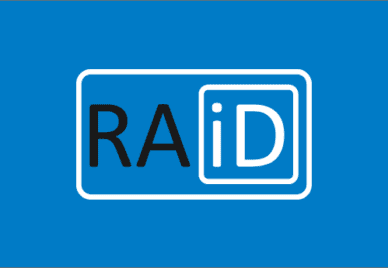
ARDC and DataCite Announce Partnership to Deliver the RAiD Service
Exploreabout ARDC and DataCite Announce Partnership to Deliver the RAiD Service
Our recently released draft national agenda for research software in Australia calls for research software to be recognised as a first-class scholarly output of research, in line with journal papers and, increasingly, research data.
As we enter a consultation phase with stakeholders from across the research sector, we hope the draft agenda will ignite discussion about the suggested agenda actions and their relative priorities, and encourage institutions and communities to join us in pursuing the agenda.
Our plan is to release a revised agenda incorporating feedback, followed by an implementation plan by the end of August for the Australian Research Data Common’s (ARDC’s) part in this initiative.
Despite its low profile, research software is a highly specialised output that greatly benefits our society, economy and natural environment.
Most researchers can’t do their work without software, yet it is often an invisible part of research, produced quickly without the application of software engineering principles, and struggles to be maintained beyond a funding window.
Often, specialised software encodes research processes, adding value to the data, though the value is commonly attributed to the data alone.
Furthermore, describing how software works in a journal paper may no longer be enough, says ARDC Software Program Manager Tom Honeyman, who co-wrote the draft agenda with our Director of Platforms and Software Andrew Treloar.
“The software code can be the record of how the researcher went from data to a set of conclusions,” says Tom. “Historically, the paper documents this. But we’re moving to a world where the data are also available and people might want to interrogate the methods used in the form of the software code.”
At the other end of the spectrum, if the underpinning research software tools, libraries and frameworks are not being maintained, they are unlikely to function beyond a couple of years at best. The problem here is less about the task than it is about people.
“It’s nobody’s job, basically,” says Tom. “Maintaining research software is often propped up by volunteer efforts, where it’s not really part of their career because software is not recognised as a first-class output. This also affects the integrity of research, being built on this fragile ecosystem.
“At the ARDC, we see research software and the people who develop and maintain it as a critical enabler of research — as part of our national research infrastructure.”
To cater for the many types of research software, drivers and stakeholder needs, the draft agenda is arranged into three domains or layers:
To succeed in making these changes, systematic cultural change is needed.
“Recognition is a cultural act,” says Tom. “And this agenda is about changing scholarly practice and organisational structures, which are informed by culture.”
The strategy for changing the culture, based on that of the Center for Open Science, is to make sure that the change is possible (with infrastructure), easy (with guidance), normative (through communities) and codified (with policies and incentives). The 12 actions proposed in the draft agenda align with this strategy.
The draft agenda is informed by scholarly literature and what other countries and organisations are doing. This is a global issue and several countries are working on it, chief among them the UK, where the Software Sustainability Institute (SSI) has been working on it for a decade.
The SSI was first to recognise and name the role of research software engineer (a role not recognised in Australia) and effect change through professionalising the role.
SSI Director Neil Chue Hong has been at the helm since 2010.
“Research is fundamentally international; today, most people collaborate across the world. And research fundamentally relies on software. For these two reasons it’s important that each country has a strategy and that these strategies are aligned,” says Neil.
“Ultimately, to make software a first-class citizen, we need to recognise its value and its cost. Then we can talk about investment.
“What the ARDC strategy does really well is that it plays to Australia’s strengths and leadership on research data and the processes and infrastructure to support it, which is a natural extension for the national agenda for research software.
“This cohesive strategy acts as a beacon for other countries, showing how to rally the right people around and identifying the role each organisation and community plays. It gives a model for the rest of the world.”
The agenda also ties in well with the recent expansion in scope of the OECD recommendation on access to research data created with public funding, to which Australia is a signatory. Amended in 2021, the recommendation now calls for research software arising from public funding to be shared for greater public benefit, and identifies the role of the research software engineer in making this happen.
During July and August we are planning a string of events to engage with the research sector, gauge interest and capture ideas.
For more details, including events for specific stakeholders, please visit our website. You may also contact us directly to give us your feedback in writing or arrange a time to chat.